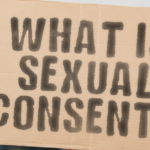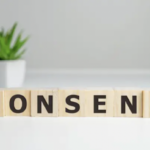Can a Person Consent to Sexual Activity Whilst Intoxicated?

The twenty first century has seen a whole of radical changes to the definition of sexual consent in New South Wales, invariably expanding the situations when it is to be considered a person is not consenting.
Previous definition of sexual consent as it relates to intoxication
Section 61HE was inserted into the Crimes Act 1900 (NSW) on 1 June 2008, which defined the term consent, the circumstances in which a person is taken to know the other is not consenting, as well as listed situations whereby consent is taken to be negated.
The section also listed circumstances which are to be considered when determining whether consent exists.
One of those circumstances was contained in subsection 61HE(8)(a), which provided that:
“The grounds on which it may be established that a person does not consent to a sexual activity include… if the person consents to the sexual activity while substantially intoxicated by alcohol or any drug,”
So, the facts that a participant was “substantially intoxicated” was one of several factors which could be taken into account when determining whether consent existed.
Current definition of sexual consent as it relates to intoxication
Section 61HE was repealed on 1 June 2022 and replaced by sections 61HH to 61HK, which expanded the circumstances in which there is considered to be no consent to sexual activity, as well as inserted an ‘affirmative consent’ provision, requiring participants to take active steps to ensure there is consent to any proposed sexual activity.
In the context of consent as it relates to intoxication, section 61HJ(1)(c) of the Act now explicitly stipulates that there is no consent where a person is: “so affected by alcohol or another drug as to be incapable of consenting to the sexual activity”.
So how does the new provision mean in practical terms?
When is someone too intoxicated or high to consent?
Merely being intoxicated by alcohol or “high” on drugs does not necessarily mean a person cannot consent to sexual activity.
However, a person who is so intoxicated or high that they cannot freely and voluntarily agree to sexual activity cannot consent.
This can include situations where:
- A person is so intoxicated or high, they cannot communicate or withdraw consent due to slurred speech, poor coordination or other impairments.
- A person is so intoxicated or high they cannot understand the nature of the sexual acts being performed or who they are being performed with.
- A person has “passed out” or is otherwise unconscious.
Does intoxication impact the accused’s ability to know lack of consent?
The mental element for sexual offences under the Act is outlined under s61HK and includes situations where:
- The person actually knows the other person does not consent;
- The person is reckless as to whether the other person does not consent; or
- Any belief the person has that the other person consents is not reasonable in the circumstances.
In determining whether the accused had the required mental element for the offence, s61HK(3) makes it clear that a jury (or judge in a judge-alone trial) cannot consider any self-induced intoxication.
Intoxication will be “self induced” unless it was:
- Involuntary;
- Is the result of fraud, sudden or extraordinary emergency, accident, reasonable mistake, duress or force, or
- Is the result of prescription medication taken in accordance with recommended dosage levels.
This means that generally, the fact that the accused was intoxicated or “high” at the time of offending cannot be taken into account in determining whether they knew the complainant was not consenting.
What is sexual activity?
Sexual activity includes not just sexual intercourse, but also sexual touching and also sexual acts.
The new definition comes into play where a person is accused of any of the following offences:
- Sexual assault under section 61i of the Act, which carries a maximum penalty of 14 years in prison,
- Aggravated sexual assault under section 61J, which carries a maximum of 20 years,
- Aggravated sexual assault in company under section 61JA, which carries a maximum of life in prison,
- Sexual touching under section 61KC, which carries a maximum of 5 years,
- Aggravated sexual touching under section 61KD, which carries a maximum of 7 years,
- Sexual act under section 61KE, which carries a maximum of 18 months, and
- Aggravated sexual act under section 61KF, which carries a maximum of 3 years.
The offence of using an intoxicating substance to commit an indictable offence
Section 38 of the Act outlines a separate offence for situations where an “intoxicating substance” including alcohol and other drugs is given to another person to assist in committing an indictable offence (including a sexual offence).
This offence carries the maximum penalty of 25 years imprisonment.
The offence of ‘drink spiking’
Section 38A of the Act outlines the offence of drink spiking which involves:
- Causing another person to be given or to consume drink or food containing an intoxicating substance that they are not aware or; or containing more of an intoxicating substance than they would reasonably expect;
- Intending the person to be “harmed” by the consumption of the drink or good.
“Harm” within the context of this section includes an impairment of the senses or understanding of a person that the person might reasonably be expected to object to in the circumstances.
Receive all of our articles weekly
Related Articles
RELATED LEGISLATION
- Section 61HE Crimes Act 1900 | Consent in Sexual Assault Cases
- Section 61HH Crimes Act 1900 | Definitions Relating to Sexual Consent Laws
- Section 61HI Crimes Act 1900 | Consent Generally
- Section 61HJ Crimes Act 1900 | Circumstances in Which There is No Consent
- Section 61HK Crimes Act 1900 | Knowledge about Consent
- Section 61i Crimes Act 1900 | Sexual Assault
- Section 61J Crimes Act 1900 | Aggravated Sexual Assault
- Section 61JA Crimes Act 1900 | Aggravated Sexual Assault in Company
- Section 61KC Crimes Act 1900 | Sexual Touching
- Section 61KD Crimes Act 1900 | Aggravated Sexual Touching
- Section 61KF Crimes Act 1900 | Aggravated Sexual Act






